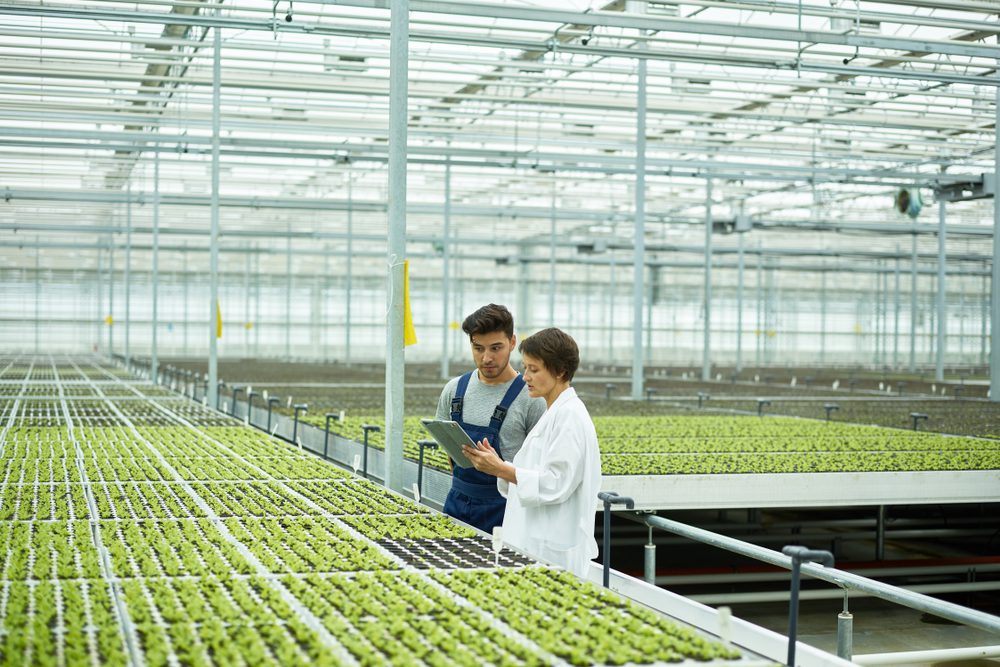The integration of artificial intelligence (AI) into Laboratory Information Management Systems (LIMS) is playing a pivotal role in the evolution of agritech. As agriculture faces mounting pressures from climate instability, food insecurity, and the demand for sustainable practices, the capacity to process and act on complex data quickly is becoming critical. AI-enhanced LIMS platforms are enabling agricultural laboratories to do just that, revolutionising how research is conducted, how decisions are made, and ultimately how crops are developed and managed.
Accelerating crop innovation and sustainability with intelligent data-driven research
AI-driven LIMS systems are helping agricultural researchers fast-track breeding programmes by analysing vast genomic and phenotypic datasets. With these tools, scientists can identify favourable traits such as drought resistance, pest tolerance, and enhanced nutritional content with a degree of speed and precision that was once unattainable. Traditional breeding methods that relied on generational cycles and statistical projections are being replaced by AI algorithms that simulate outcomes and recommend optimal gene combinations in a single cycle. This not only slashes development timelines but also raises the chances of success dramatically.
In the laboratory, AI is improving how samples are managed and tracked. Whether it’s plant tissue, soil microbes or seeds, each sample contains data critical to research outcomes. AI-integrated LIMS automate the tracking process using technologies like barcoding and intelligent analysis, enabling researchers to maintain chain-of-custody and quickly identify anomalies or contamination. These systems can also suggest follow-up actions or analyses, acting as a digital collaborator in experimental planning.
The reach of AI in agritech extends far beyond the lab. When combined with climate and field data, from satellite imagery to in-field sensor readings, AI-enhanced LIMS provide predictive models that help researchers anticipate how specific crop varieties will respond to environmental variables. These insights empower agronomists to make informed decisions about planting strategies, resource allocation and climate resilience. The ability to simulate future conditions and test multiple scenarios means fewer resources are wasted and more successful outcomes are achieved in the field.
By facilitating more precise breeding, reducing input needs and improving yield reliability, AI-enabled systems contribute to the global effort to achieve more sustainable agriculture. They allow agritech organisations to develop climate-adaptive, high-output crops that require fewer chemical inputs, thrive in challenging environments, and deliver more with less. This directly supports global food security while reducing the environmental impact of food production.
Navigating the complexities and risks of AI adoption in agritech laboratories
Despite these benefits, AI integration comes with challenges. Implementation can be costly, requiring investment in new infrastructure, system integration, and staff training. There is also the issue of data quality, AI is only as good as the information it is trained on. Poor, biased, or incomplete datasets can compromise results and lead to faulty recommendations. Moreover, the complexity of AI systems necessitates a workforce that not only knows how to use the technology but understands how to interpret its outputs and manage its risks.
Cybersecurity adds another layer of concern. AI-driven LIMS platforms are susceptible to cyber threats, especially when cloud-based or dependent on third-party tools. Laboratories must defend against data breaches, adversarial attacks, and the manipulation of machine learning models. This requires a comprehensive approach that includes encryption, multi-factor authentication, regular system monitoring, and continuous staff education in best practices.
Reaping the benefits of AI in agritech
Nevertheless, forward-thinking agritech organisations are rising to the challenge. Agricultural research institutes, biotech firms and seed companies are increasingly adopting AI-integrated LIMS to modernise their operations. These systems are often tailored to include features like regulatory compliance management, intellectual property safeguards and collaboration modules that support global, cross-institutional research. They are scalable and flexible, making them suitable for small laboratories and multinational agribusinesses alike.
As AI continues to embed itself in the agritech sector, it is becoming not just a technological advantage but a strategic necessity. Laboratories equipped with intelligent LIMS platforms are better positioned to innovate, adapt and thrive in a world that demands sustainable,resilient, and efficient agricultural practices. AI in LIMS is not just reshaping how labs operate; it is helping shape the future of global agriculture itself.




Comments are closed.